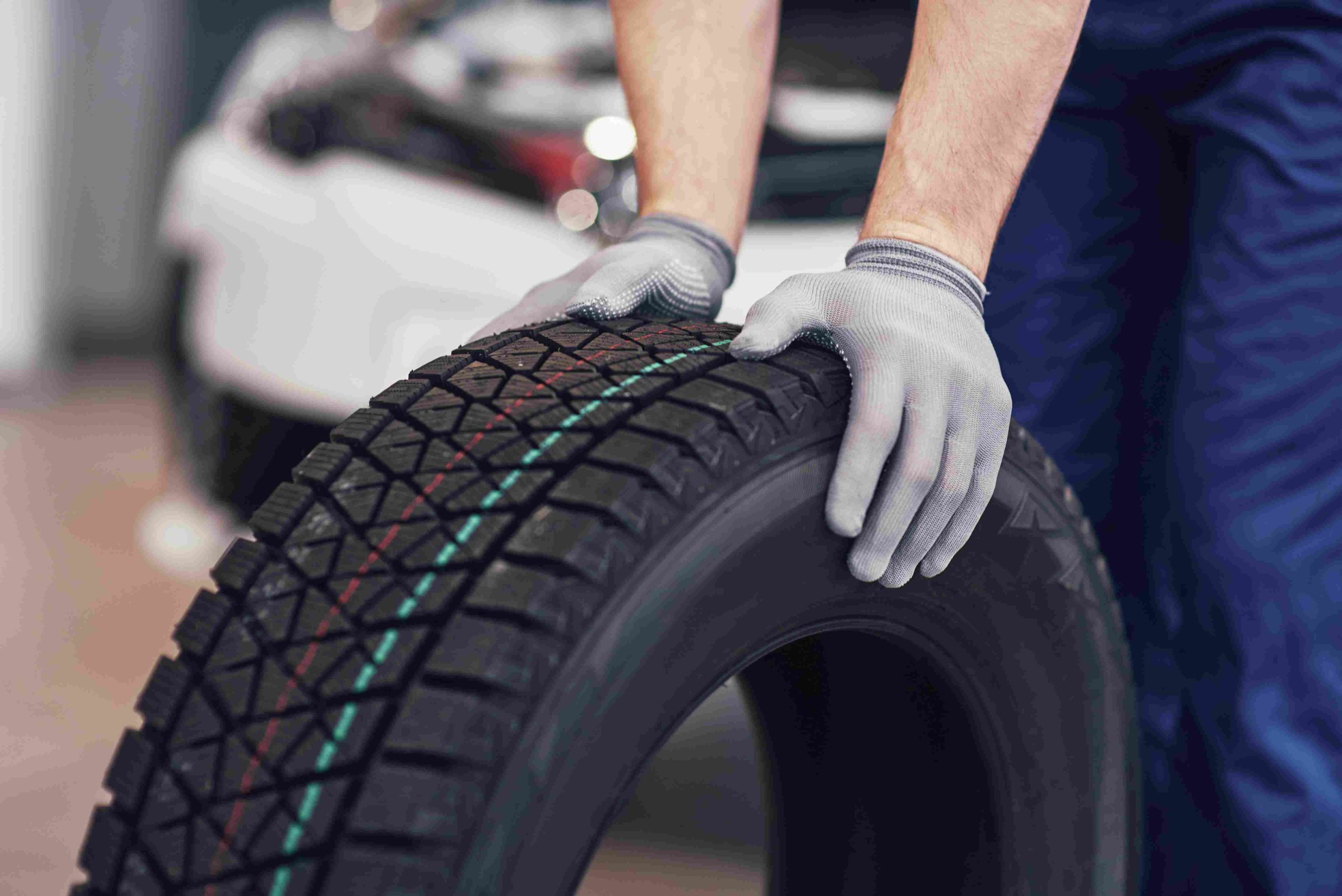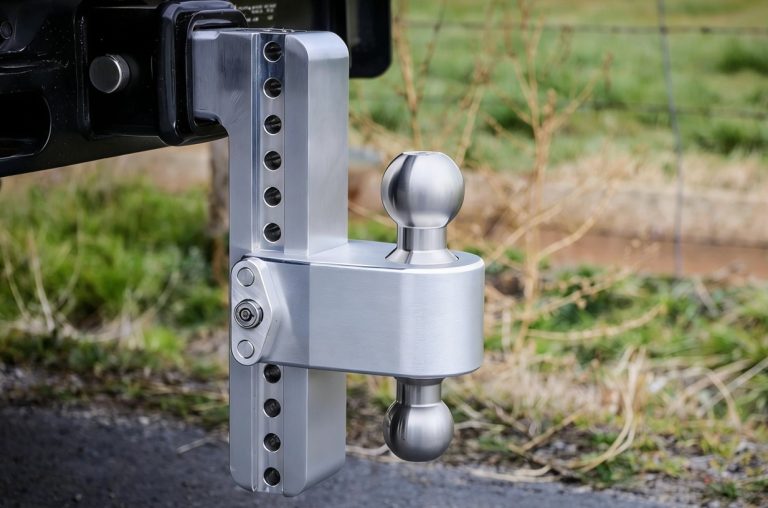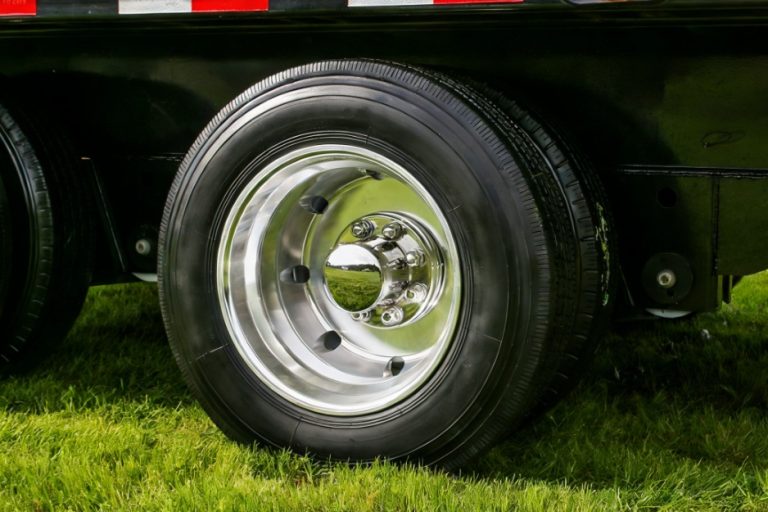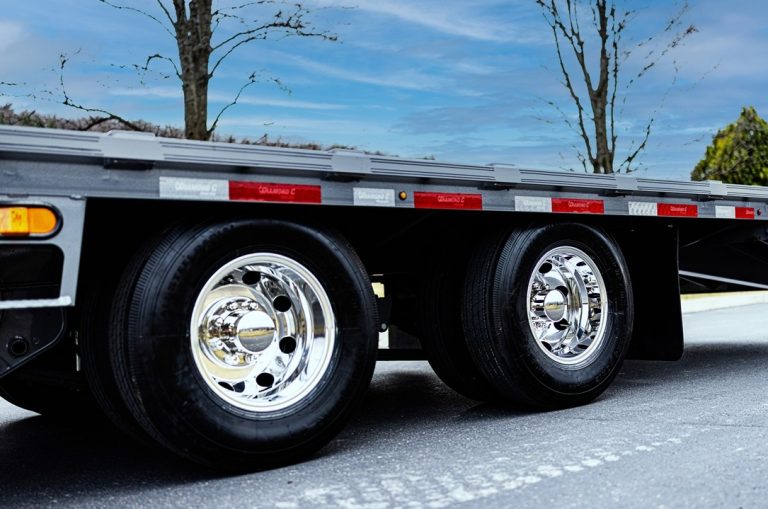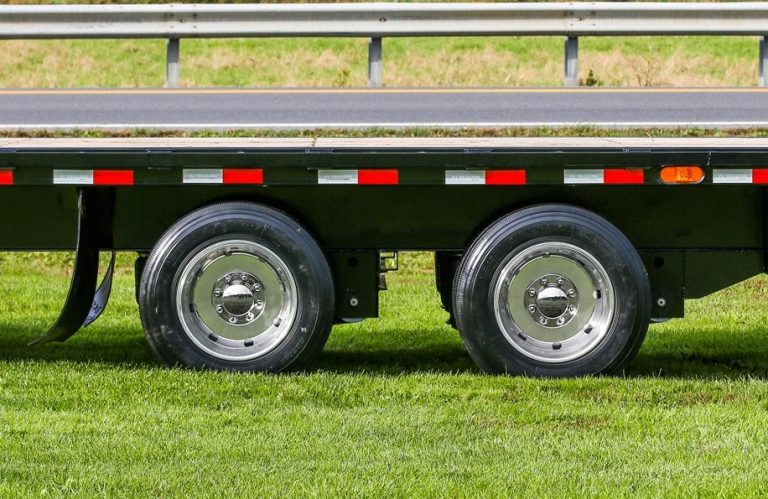Understanding Trailer Tires
What Are Trailer Tires?
Trailer tires are built for towing jobs. They’ re not like car tires, which focus on grip, sharp turns, and quick stops. Instead, trailer tires handle heavy stuff, keep trailers steady, and roll smoothly over long trips. They have tough sidewalls to carry big loads without bending too much. This helps stop the trailer from wobbling or bouncing. You can spot trailer tires by the “ST”mark on the side. It stands for Special Trailer. This mark means the tire meets strict rules for trailers. It’ s got a higher weight limit, better heat protection, and treads made for straight driving, not curvy roads.
Why Trailers Need Special Tires
Trailers don’ t have engines or drive wheels. They’ re pulled by a vehicle, so they depend on it for moving and stopping. Trailer tires just need to carry the load and roll easily without messing up the tow. Car tires? They’ re not strong enough for this. Their sidewalls are too soft, and they can’ t handle the heavyweight. Using them on a trailer can cause wobbles, blowouts, or crashes. That’ s why you need tires built for trailers.
Styles of GO Trailer Tires
GO Trailer makes tires and wheels for all kinds of trailers. We match the tire to your job, like:
- Boat Trailers: These need rims that don’ t rust in saltwater. The tires must handle wet, slippery docks.
- Cage Trailers: These carry heavy stuff like bricks or lawn gear. They need tough, all-terrain tires.
- Car Trailers: These haul vehicles need tires rated for super-heavy loads over long roads.
Here’ s what GO Trailer offers:
- 8-inch Beach Wheels: Great for soft ground like sand or grass. You see them on small beach trailers or jockey wheels.
- Rubber-Covered Iron Wheels: These work on pavement or gravel. They’ re strong and soak up bumps well.
- Nylon Wheels: Light and rust-proof. Perfect for tools or small dollies.
Picking the right tire for your trailer’ s job keeps it safe, lasts longer, and works better. GO Trailer makes sure of that.
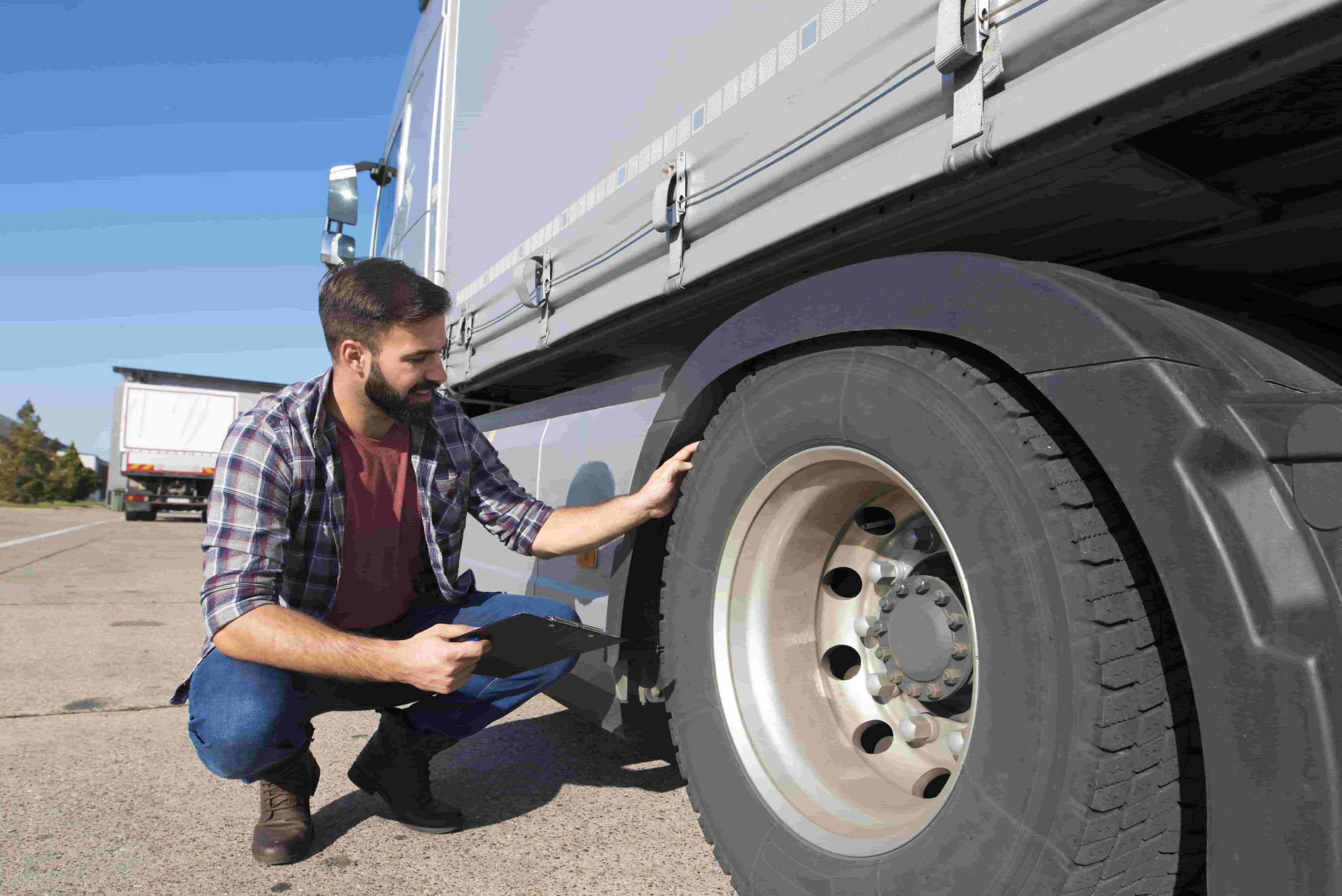
Common Applications for Trailer Tires
Trailer tires show up in tons of places:
- Logistics: Moving boxes between warehouses or stores.
- Construction: Hauling tools, machines, or supplies to build sites.
- Farming: Carrying crops, animals, or tractors.
- Fun Stuff: Like boat trailers, campers, or ATV haulers.
For example, GO Trailer helped vipeor GmbH with car trailer wheel hubs. They used 1500KG-rated tires. This lets vipeor move cars across long distances without any trouble.
Key Differences Between Trailer and Car Tires
Structural Differences
Car tires are made for gripping roads, turning tight corners, and stopping fast. Their sidewalls are softer to stick to the pavement when you turn. Trailer tires? They’ re stiffer. That helps them stay steady when the trailer’ s loaded up. No swaying, no shaking.
Load Capacity and Sidewall Strength
Trailer tires carry way more weight than car tires. Take GO Trailer’ s double wheel trailer jack with bracket—it holds 2000 lbs (907 kg). The sidewalls are built tough to avoid squishing under pressure. Weak sidewalls could make the trailer tip or crash, so this matters a lot.
Tread Design and Heat Resistance
Trailer tire treads are simple. They’ re made for going straight, not hugging curves. The rubber’ s special too—it fights off heat. Towing for hours builds up heat in tires. If they’ re not made for it, they can pop. Trailer tires use heat-tough compounds to avoid blowouts, unlike car tires.
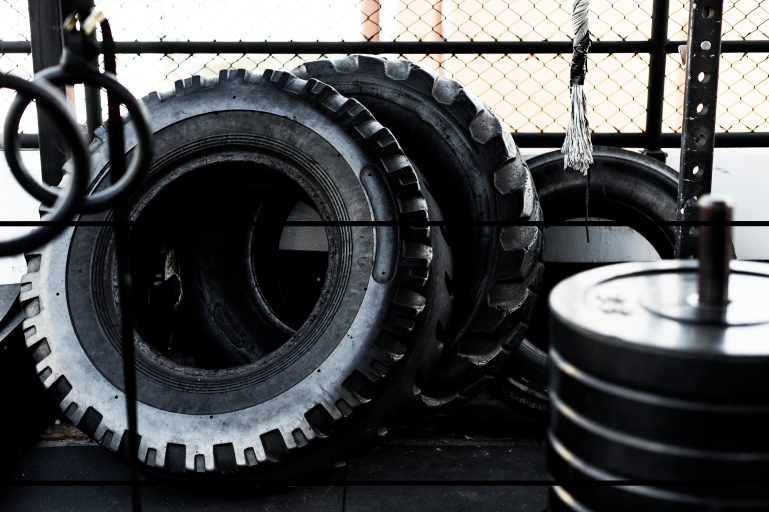
Why Choose GO Trailer Tires
Features of GO Trailer Tires
GO Trailer builds tires for stuff like: Electric Trailer Jockey Wheels, Swivel Jacks, and Trailer Dollies.These come with nylon wheels, rubber-coated iron wheels, or beach wheels, depending on what you need.
Heavy Load Performance
Take our swivel bracket electric trailer jockey wheel. It holds up to 498 kg per wheel. That’ s perfect for big trailers, like ones carrying boats or heavy gear. It’ s tough and reliable.
Holding Its Own in Extreme Conditions
GO Trailer makes its rims and parts last. We use hot-dip galvanizing and powder coating to stop rust. This is huge for boat trailers near the ocean or in wet places. No rust, no worries.
Proper Use and Care Hints
Accurate Inflation and Pressure Inspections
Check the tire’ s sidewall for the right PSI. That’ s the air pressure it needs. Too little air makes tires hot and risks a blowout. Too much air wears them out unevenly and makes the rides bumpy. Keep it just right.
Rotation and Alignment Specifications
Trailers don’ t need tire rotation as much as cars. But if you haul uneven loads, rotate them every few months. It spreads out wear. Also, check the axle alignment. If it’ s off, tires wear out fast or unevenly.
Storage and Seasonal Care
If you’ re not using the trailer for a while, put it on jack stands. This stops flat spots on tires.Keep it in a cool, shady spot. Sunlight cracks rubber over time.Think about tire covers for extra protection.
Selecting the Right GO Trailer Tire
What to Consider When Buying
When picking a tire, think about:
- Weight Limit: Match or beat your trailer’ s max load.
- Size: Check rim size and clearance.
- Ground Type: Pavement, gravel, sand, or mixed.
- How Often You Tow: Daily or just sometimes?
- Weather: Saltwater, hot sun, or freezing cold?
Understanding Tire Size Designations
Look at this——ST205/75R15:
- ST: Special Trailer
- 205: Tire width in millimeters
- 75: Sidewall height (75% of width)
- R: Radial tire
- 15: Rim diameter in inches
It’ s like a code that tells you what the tire fits and does.
FAQ
Q: Can I use car tires on my trailer?
A: No way. Car tires aren’ t tough enough. They don’ t have the strong sidewalls or weight ratings that trailers need. They could wobble, wear out fast, or even burst.
Q: When should I replace trailer tires?
A: Swap them out every 5–7 years, even if they look okay. Old rubber gets weak. Check yearly for cracks, bulges, or uneven spots.
Q: How much PSI for trailer tires?
A: Check the sidewall. It’ ll say the exact PSI. Usually, it’ s 50–65 PSI for most trailer tires, higher than car tires.
Q: Do trailer tires need balancing?
A: It’ s not as big a deal as with cars. But balancing helps. It makes towing smoother, cuts vibration, and makes tires and bearings last longer.
Q: How do I stop trailer tire blowouts?
A: Keep air pressure right, don’ t overload, use the right tires, and store them away from sunlight. Replace old tires, even if the tread looks fine.


